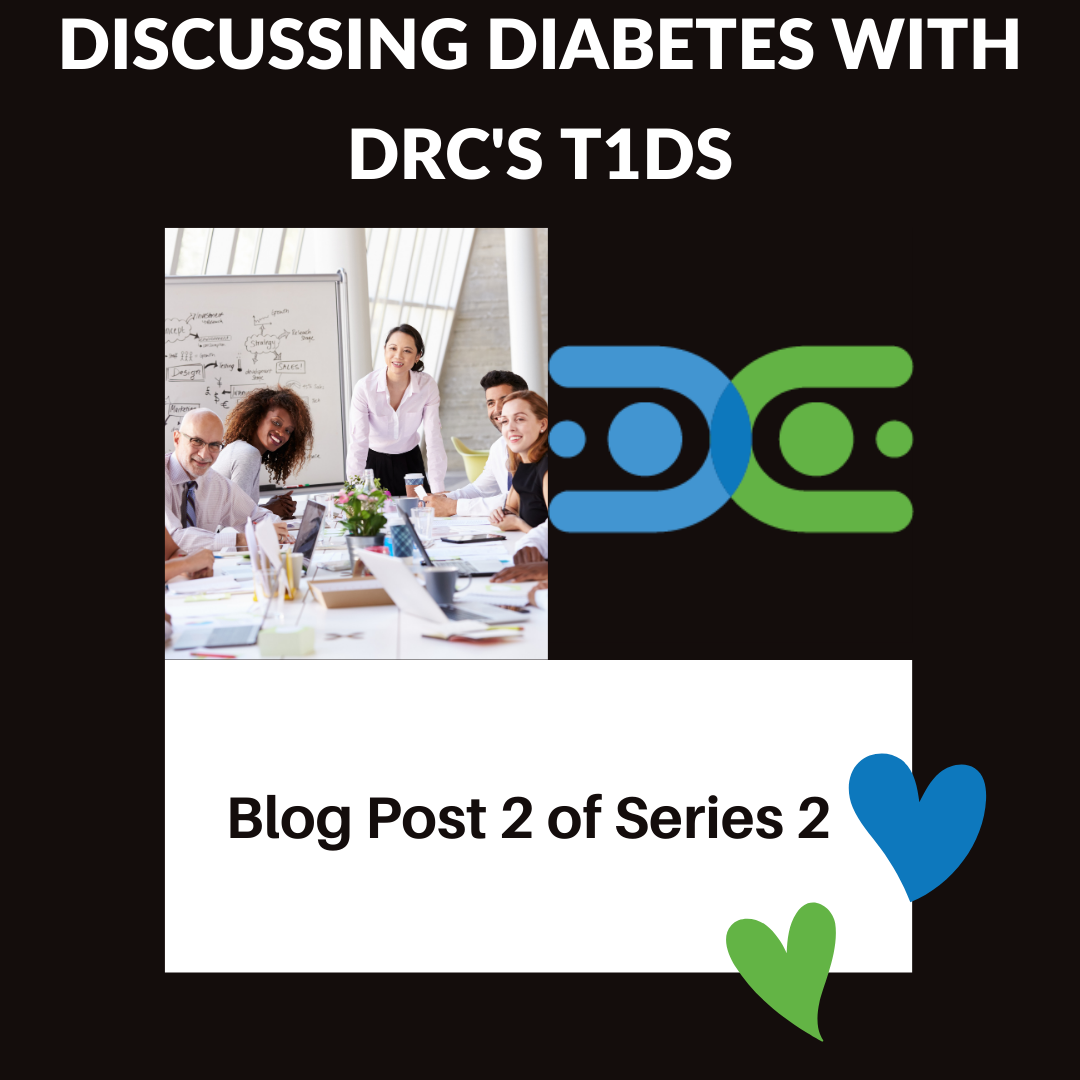If you are confused and wondering why I am writing a blog responding to Erika Szumel’s article, “Tips for Managing T1D in the Workplace,” when I work at a type one diabetic non-profit, know that I have worked difficult jobs in the past where this information would have been extremely helpful. I have never hidden my disease from anyone in school, around friends, or even total strangers I have just met. However, when I started looking for a job, I remember my dad explicitly warning me not to use my disease as a crutch or allow my superiors, coworkers, and clients to use my disease against my capabilities. While no-one threatened me, there was always underlying tension in my previous positions that forced me to be sub-par with my T1D management to appear as a stellar employee, and I paid for it physically.
The first item that Erika touches on in her article is to “Be Open.” Erika makes a great point stating that “T1D is a disease that, unfortunately, our world does not know well enough yet, exposing your coworkers to it from the start will also leave a mark on them.” I always told my coworkers about my disease, and they were accommodating when it came to good and bad days. Sure, they offered unhelpful advice at times, but their support and sympathy got me through difficult situations with my superiors. This is where things get interesting. When I forgot my T1D supplies or my blood sugar was high/low, my previous superiors still had tasks for me. After I mentioned an issue regarding my disease, some of them would begin a request with something along the lines of, “I know you couldn’t finish X last week because you had diabetes problems. If you could inform me earlier about your condition, I can find someone else to handle your work.” Ouch, right? After hearing something like that, I never mentioned how I was feeling and dealt with the consequences in order to make them happy in fear of losing my position. This brings up another vital tip that Erika writes about, “Don’t Downplay Diabetes.” I never looked into the programs and laws that were protecting me, and that is my fault. I could have had a seizure or gone into diabetic ketoacidosis and made my situation worse for myself. If you want to see all of the resources that can help you if you are in a difficult situation at work, click here and here.
After two arduous years of putting the needs of my job above my health and realizing that it wasn’t worth the pain, I decided my next position was going to be positive for not only my mental and emotional health but, more importantly, my physical health. I followed Erika’s last tip, “Don’t Be Afraid to Step Away.” While she means it is ok to step away at any time in a job, like during meetings or events, I also took it to mean leaving a toxic profession/position. Now I am the development and program assistant at Diabetes Research Connection, and instead of ignoring my health, I take breaks a lot. My supervisor knows me well after explaining how I function as a T1D even though she isn’t. When I feel low, I know it is ok to take a 15-30 minute break to get back to 100% or close to it. If I am having issues with my CGM, have a doctor’s appointment, or dealing with a bad blood sugar, she doesn’t question my ability to get the job done; her first question is, “Is there anything I can do to help?” or tells me to do what I need to so that I am healthy. It is so important to have good communication with your direct supervisor and coworkers so that you have the support you need and peace of mind that you don’t need to fear losing your position. Just know that you can continue to be the best employee you are without jeopardizing your health.
This blog was written by Hannah Gebauer, DRC’s Development Assistant, who has had T1D for 18 years and is responding to the article, “Tips for Managing T1D in the Workplace.”





